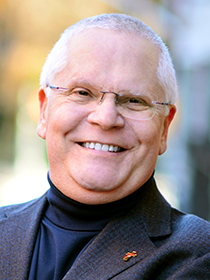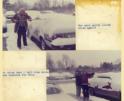
Culture
This weekend, as we prepare for Labor Day, we're challenged to labor in the vineyard, to work on our faith by being people of action, charity, sacrifice, love.

Kandra
Dt 4:1-2, 6-8
Ps 15:2-3, 3-4, 4-5
Jas 1:17-18, 21b-22, 27
Mk 7:1-8, 14-15, 21-23
Are we doers? The letter from James this Sunday lays it all on the line and reminds us what truly matters. Think showing up at church, saying prayers and dropping an envelope in the collection basket is enough? Think again.
"Humbly welcome the word that has been planted in you and is able to save your souls," James wrote. "Be doers of the word and not hearers only... care for orphans and widows in their affliction and keep oneself unstained by the world."
This comes from the same writer who cautioned his readers later in the same letter that just believing isn't enough: "Faith of itself, if it does not have works, is dead."
Looked at another way: If you want faith that is alive, you have to make it breathe and put it to work.
Scholars are divided about who, exactly, James was writing to, but his message clearly transcends time and place -- and resonates perfectly for us today alongside the excerpt we hear this Sunday from Mark's Gospel.
In a nutshell: We need to get busy.
This weekend, as we prepare for Labor Day, we're challenged to labor in the vineyard, to work on our faith by being people of action, charity, sacrifice, love. To do, not just hear. The letter from James is a timely lesson (in case we've forgotten over the lazy days of summer) that the Christian vocation doesn't take a vacation. We are never not living our faith. We are called to put it to work. We're not only supposed to show up at church on Sunday morning, but we have to open our hearts to those in need on Monday.
A Christian is called to do more than just listen to God's word; we need to take it to heart and act on it in the world. And we need to remember the source.
"All good giving and every perfect gift is from above," James noted, "coming down from the Father of lights."
This is where everything begins -- inspiration, guidance, courage, faith. From above, God offers us light to guide our way and direct our lives.
In his letter, James exhorted the early Christians to cooperate with God. For us, that means to put faith into action and prayerfully seek ways for God to use us.
What will we do?
To paraphrase St. Teresa of Avila, we are now his hands, his legs, and his body. What will we shape with those hands? Where will we walk with these legs? What will we bear on our shoulders? What will we do for others? What will we do for him?
For it is in the doing -- in the living of the Gospel, day by day, moment by moment, choice by choice -- that we make Christ present in the world.
It is in the doing that we are redeemed.
And it is in the doing that we can help, in some small way, to redeem the world. Faith and devotion to the will of God has to be more than skin-deep.
In the Gospel, Jesus quoted Isaiah and delivered a similar message to the scribes and Pharisees, who couldn't help but notice that some of the apostles didn't follow closely the Jewish laws of purification.
Their complaints struck Jesus as misguided.
"This people honors me with their lips," Jesus said, "but their hearts are far from me..." And he added: "You disregard God's commandment but cling to human tradition."
This reading should make all of us dig deep and take stock of how we hear God's word, and what we do with it.
What will we do?
- Deacon Greg Kandra is an award-winning author and journalist, and creator of the blog, "The Deacon's Bench."
Recent articles in the Culture & Events section
-
Tolkien's world, still popular on the big screen, began with faith and wordsCecilia Hadley
-
Scripture Reflection for Dec. 22, 2024, Fourth Sunday of AdventDeacon Greg Kandra
-
Getting adult children to Christmas MassGreg Erlandson
-
The work of redemptionEileen McLaughlin
-
Intern reflectionsEmily Greco and James Kaeser


















